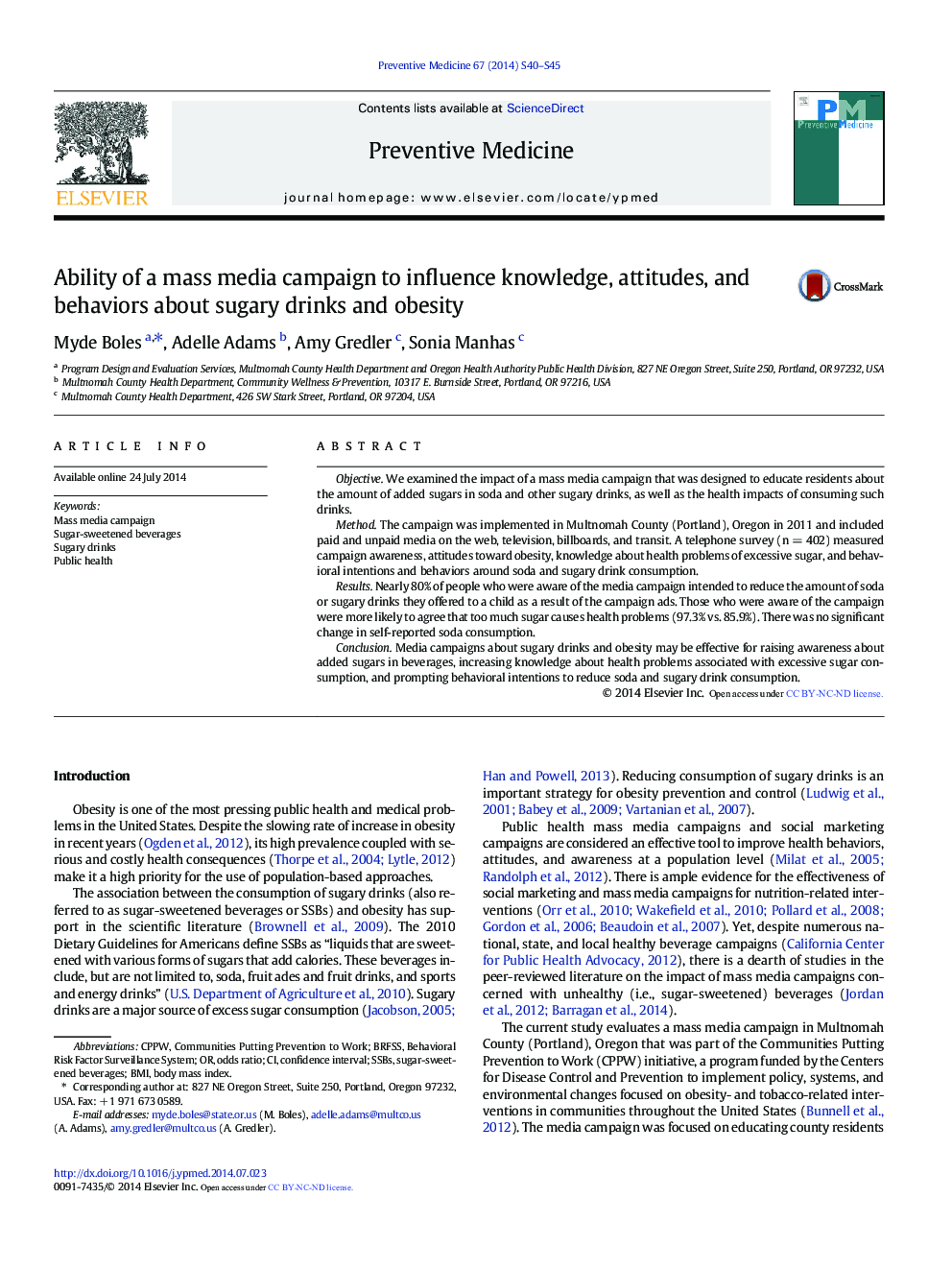| Article ID | Journal | Published Year | Pages | File Type |
|---|---|---|---|---|
| 3100486 | Preventive Medicine | 2014 | 6 Pages |
•Media campaigns about sugary drinks may be effective for raising awareness about added sugars in beverages.•Media campaigns about sugary drinks may be associated with knowledge about health problems associated with excessive sugar consumption.•Media campaigns about sugary drinks may prompt behavioral intentions toward reducing soda and sugary drink consumption.
ObjectiveWe examined the impact of a mass media campaign that was designed to educate residents about the amount of added sugars in soda and other sugary drinks, as well as the health impacts of consuming such drinks.MethodThe campaign was implemented in Multnomah County (Portland), Oregon in 2011 and included paid and unpaid media on the web, television, billboards, and transit. A telephone survey (n = 402) measured campaign awareness, attitudes toward obesity, knowledge about health problems of excessive sugar, and behavioral intentions and behaviors around soda and sugary drink consumption.ResultsNearly 80% of people who were aware of the media campaign intended to reduce the amount of soda or sugary drinks they offered to a child as a result of the campaign ads. Those who were aware of the campaign were more likely to agree that too much sugar causes health problems (97.3% vs. 85.9%). There was no significant change in self-reported soda consumption.ConclusionMedia campaigns about sugary drinks and obesity may be effective for raising awareness about added sugars in beverages, increasing knowledge about health problems associated with excessive sugar consumption, and prompting behavioral intentions to reduce soda and sugary drink consumption.
